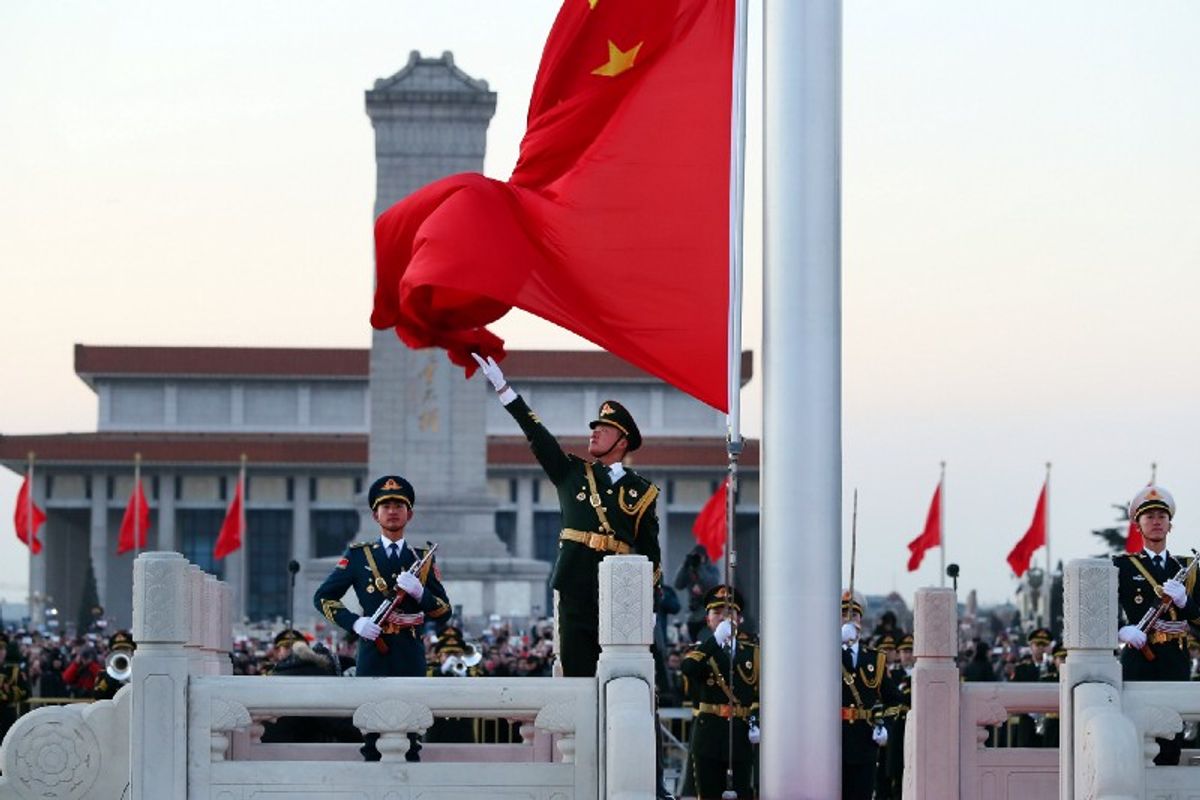The United States is deliberately narrowing its role in the world. Bold new contenders are looking to fill the gap. Popular trust in institutions is plummeting. New technologies are at the heart of international tensions and conflict. What could possibly go wrong?
Every January, our parent company Eurasia Group lists the ten biggest global risks for the coming year, as well as a few red herrings that you may not need to worry about. You can read the whole report here, but if you want a shortcut to geopolitical anxiety, we’ve got you covered:
#1 China loves a vacuum: Trump’s “America First” approach seeks to reduce America’s global role and responsibilities precisely as China is now angling to become a global superpower itself. In trade, technology, and even soft power competition — fresh friction between the world’s two largest economies will ripple across all sectors and regions this year.
#2 Accidents: There hasn’t been a major geopolitical crisis since 9/11, but in a fragmenting world without common understandings or leadership, 2018 could be the year something goes badly wrong: that might be a major cyberattack on critical infrastructure, a military miscalculation between rival powers in Syria, a misstep in North Korea, or… you tell us what worries you. We’re here for you.
#3 Global tech cold war: Mastery of artificial intelligence and big data will be essential for any 21st century global power — and so a new “space race” has begun as countries seek to dominate these technologies. The main event? China’s rigorous state-driven model versus the decentralized innovation of America’s powerful private sector. It’s on. Alexa’s not sure what her mother tongue will be in ten years’ time.
#4 Mexico: NAFTA hangs in the balance. Trump keeps needling Mexico about that wall. Rising anti-US sentiment has helped make anti-establishment candidate Andres Manuel Lopez Obrador the frontrunner for July’s presidential election. His victory would usher in a period of profound political and economic uncertainty for Latin America’s second largest economy.
#5 US-Iran relations: Trump and the Mullahs — little love lost. The US will work harder this year to crush Iran’s growing influence in the Middle East, raising the stakes in a region already riven by proxy conflicts between Tehran and US-ally Saudi Arabia. What’s more, the possible collapse of the Iran nuclear agreement could open the way to direct military confrontation with Iran.
#6 The erosion of institutions: Across the developed world, popular trust in media and government institutions is falling, undermining governance, accelerating anti-establishment sentiment, and increasing the prospect of unpredictable social and political outcomes.
#7 Protectionism 2.0: A fresh form of protectionism is targeting “new” sectors of the economy like IP and cross-border data flows, while implementing “behind the border” barriers to free trade and investment. With no common rules here — or anyone leading the charge for greater cooperation — the global landscape of trade rules is turning into a confusing and costly kaleidoscope.
#8 United Kingdom: So where’s the new UK-EU border going to be? That’s just one of many unresolved Brexit issues. Stalled or bungled negotiations could cost UK Prime Minister Theresa May her job. And if that happens, buckle up for a wild ride in the UK this year, as avowed socialist Jeremy Corbyn could be within striking distance of the premiership.
#9 Identity politics in southern Asia: Nationalism rocked Europe and the US in 2017, and in 2018 it’ll come to play in Asia. Southeast Asia will see rising sectarian and anti-Chinese tensions, while in India Hindu nationalism and anti-secularism are gaining fresh traction. Will these ideas stoke divisions in a way that undermines the region’s stellar economic and political progress?
#10 Africa’s security: For many years, the continent’s economic success stories such as Cote d’Ivoire, Nigeria, Kenya, and Ethiopia, have been reasonably insulated from the negative impacts of volatility elsewhere in the region. But this year, domestic political challenges and sparser external support will make them more vulnerable, in particular to the impact of militancy and transnational terrorist groups.



















